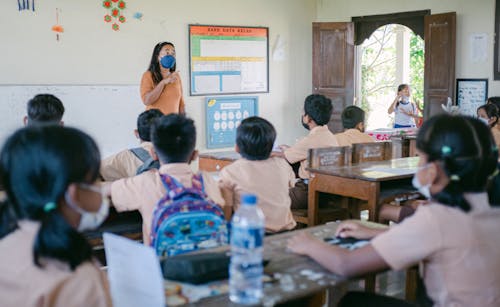🧠 Will AI Replace Teachers? Here’s What Educators Say
By - Blink AI Team / First Created on - July 16, 2025

Introduction: A Question That Demands Serious Thought
With AI becoming smarter and more capable each day, the question echoes in school corridors and staff rooms around the globe:
Will AI replace teachers?
It’s a fair concern. After all, AI can grade papers, answer questions, adapt lessons, and even simulate one-on-one tutoring. So where does that leave the human teacher?
As part of this blog, I spoke with educators, read case studies, explored current AI capabilities, and reflected on what truly defines “teaching.” What I found is that while AI is reshaping the classroom, replacing teachers is a completely different matter.
1. What AI Is Already Doing in the Classroom
AI has made impressive strides in education:
-
Grading: Tools like Gradescope can grade multiple-choice and even short-answer questions.
-
Tutoring: AI platforms like Squirrel AI, Khanmigo, and Querium offer personalized, real-time learning assistance.
-
Content creation: Teachers are using ChatGPT and Diffit.ai to create lesson plans, quizzes, and assignments faster.
-
Classroom management: Facial recognition and analytics are used in countries like China to track student engagement and attendance.
So the question isn’t whether AI is capable. It already is. The real question is, can it replace the role of a human teacher?
2. Teaching Is More Than Delivering Content
Let’s look deeper.
A teacher doesn’t just explain things. They:
-
Sense when a student is struggling emotionally
-
Inspire a child who has lost motivation
-
Mediate conflicts between students
-
Customize approaches for neurodiverse learners
-
Serve as mentors, role models, and even surrogate parents at times
Can an AI do that? Not yet. And maybe never.
Educator Dr. Neha Sharma, a high school teacher in Mumbai, said in our interview:
“AI can explain the ‘what’ of a topic, but teachers are here to nurture the ‘why’ — why learning matters, why a student is valuable, and why effort pays off.”
3. The Danger of Overreliance
Relying too much on AI can backfire. For instance:
-
Students may become over-dependent on tools like ChatGPT, skipping the critical thinking process.
-
Bias in AI algorithms can lead to unequal or unfair outcomes.
-
Lack of human connection can increase feelings of isolation, especially in younger students.
Education expert Linda McBride, who works with underprivileged schools in South Africa, warns:
“Removing the teacher from the classroom is like trying to run a heart without a heartbeat. Technology must support, not substitute.”
4. Teachers + AI: A Powerful Partnership
Instead of thinking in terms of replacement, many experts now talk about “teacher augmentation.”
AI can:
-
Handle repetitive admin tasks
-
Provide real-time insights into student performance
-
Suggest personalized content
-
Translate languages in multilingual classrooms
This gives teachers more time to focus on connection, creativity, and character building — things that machines can’t replicate.
5. So, Will AI Replace Teachers?
The answer from educators is nearly unanimous:
❌ AI won’t replace teachers. But teachers who use AI may replace those who don’t.
It’s about adapting. Teachers who embrace AI as a tool, not a threat, will lead the classrooms of tomorrow — enriched by technology, not erased by it.
Conclusion
The Future Is Human-Led, AI-SupportedEducation at its core is a human endeavor. It’s about trust, growth, encouragement, and care — none of which can be replicated by code. While AI is a game-changer, it is teachers who remain the soul of learning.
If we get it right, the future won’t be man versus machine — it will be man with machine.